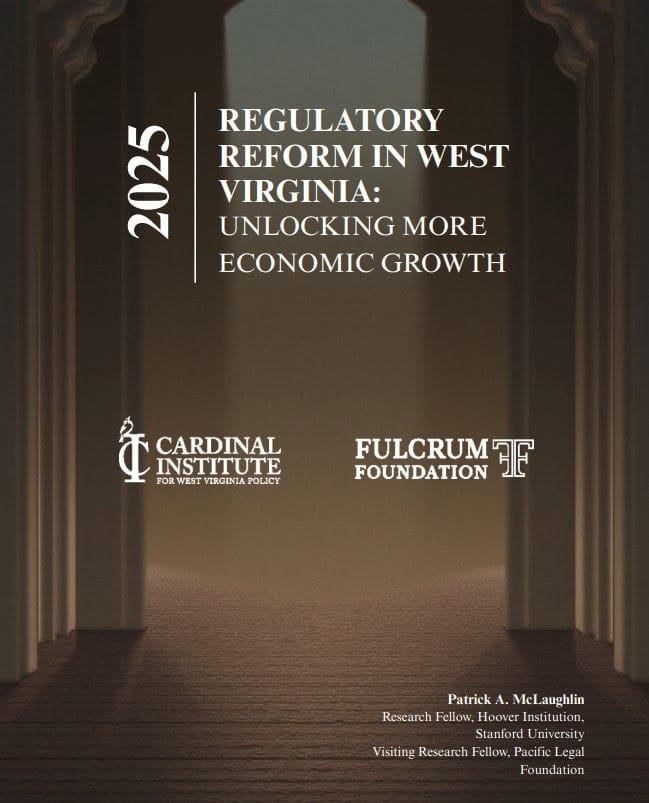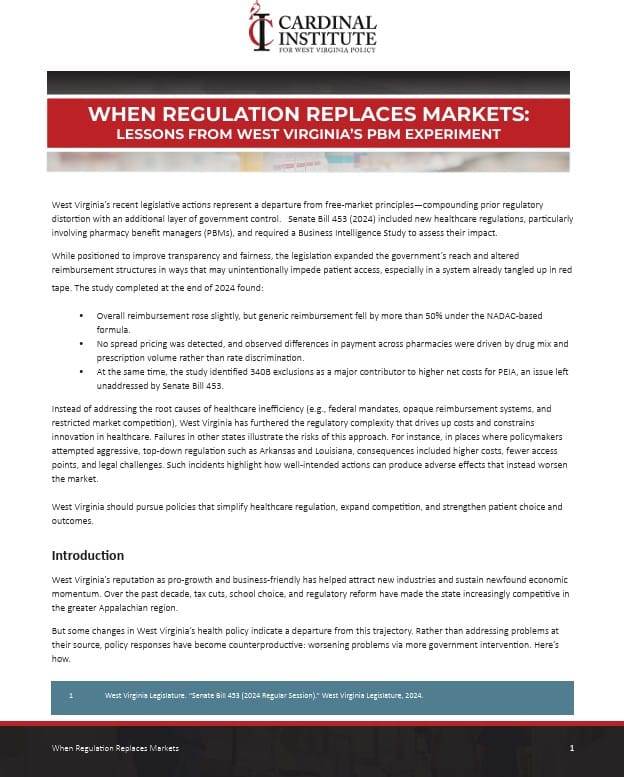
Liberty Does Not Mean A Free-For-All
Liberty Transcends Political Boundaries
The Cardinal Institute exists to research and communicate freedom oriented public policy in West Virginia. “Freedom oriented public policy” transcends political ideology. Sometimes, freedom oriented policy seems conservative, especially when it comes to talking about taxes. At other times, these policies sound a little libertarian. For example, when we want to scrap Certificate of Need laws. And at other times, public policy that places freedom at the forefront can intersect with progressive concerns. An example of this is the criminal justice reform movement. This variety could lead one to believe these policy stances are unprincipled, but that isn’t the case. Instead, freedom oriented policy is based in the ideals that the founders elegantly wrote into the documents that underpin this country. These ideals include an elevated view of the individual and the rights to life, liberty, and the pursuit of happiness.
Mistaking Liberty for License
Ask any libertarian or even small government conservative what happens when these principles are stood upon. Scoffers will say, “Well if you want no government, move to Somalia!” (Somalia, being known for its piracy issues.) What is happening here, if I’m being generous to the scoffer, is a misunderstanding. They are understanding “libertarian” to mean “libertine”. They think the “small” in small-government equals “weak”. This person could not be more wrong.
It’s understandable why, though. Often, in heated political debate or the 30 second snippets on news and opinion shows, the nuance behind policy cannot be sussed out. This is true regardless of which ideological position it is coming from. As a result, caricatures of policies end up standing in place of the policies themselves. It wasn’t always this way! I was born in 1995 and have spent more time than I care to enumerate watching older-than-me episodes of Firing Line with Bill Buckley or Donahue. But, I digress.
Small Government Isn’t Weak Government
In reality, people who hold their policy views from a liberty-first perspective actually want a strong government. You read that correctly: a strong government. They just want this strong government to be narrow in scope, powerful in protecting the rights and property of its citizens, and powerless to do the opposite.
We see shocking scenes on social media and the news almost daily now. In some larger US cities, property crime is rampant. “Kia boys” exploit security flaws to steal cars. Thieves break their windows out to grab valuables. Mobs ransack stores as they clear shelves of merchandise. Unfortunately, stories often follow of governments being powerless to stop these crimes, either through lack of resources or lack of will.
Let me say emphatically that this is not a vision of liberty. A liberty-based government would prosecute property crime and ensure restitution. Liberty-based policies create a government efficient enough and strong enough to protect its citizens (and restrained enough to protect its citizens from itself). So anytime someone casts liberty as anarchy, know that they are mistaken. Liberty does not mean a free-for-all.
Jacob McCoy is a Contributor to the Cardinal’s Nest blog.








